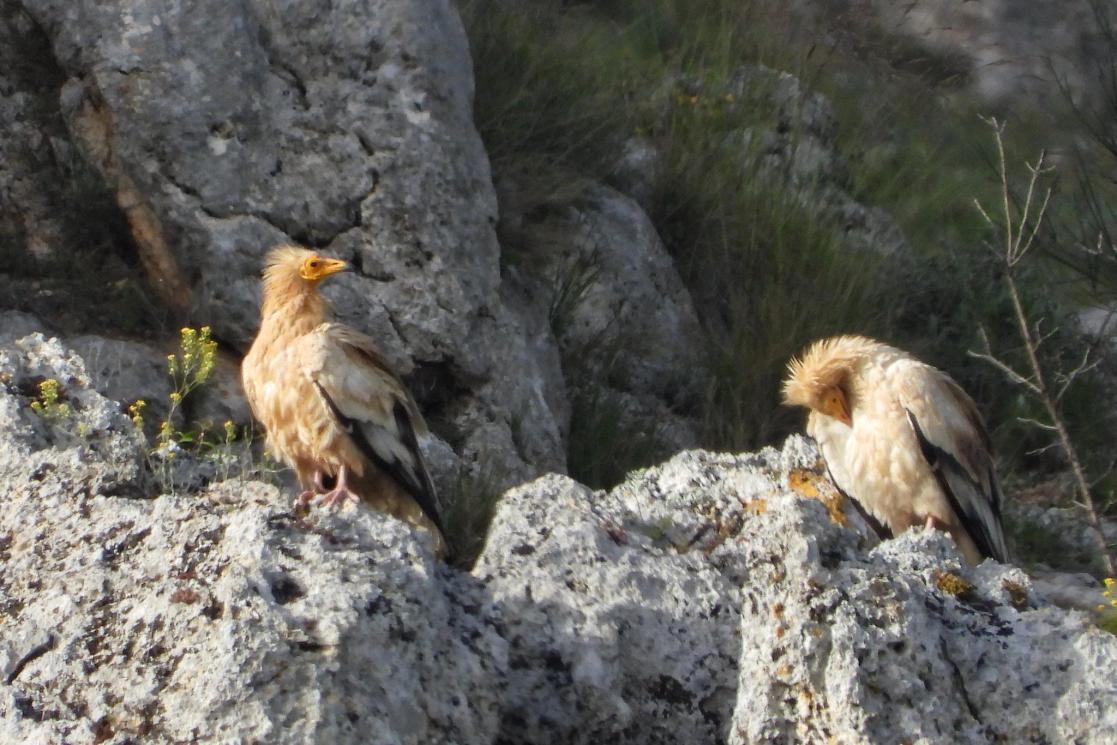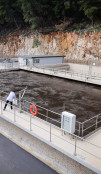The ‘Cuckoo's Horse’ and efforts to protect this endangered bird species in Albania

Once home to four species of vultures, Albania now shelters only one: the Egyptian Vulture (Neophron percnopterus), primarily found in the southern region of Gjirokastra. Born in these mountains, these birds undertake a 8,000 km migration route to their wintering grounds in Africa, returning home every spring.
Regrettably, the Egyptian Vulture faces extinction, with an 80% decline in population over the past three decades. Classified as endangered by the International Union for the Conservation of Nature Red List, Albanian environmentalists have united efforts to safeguard this species.
Activist's Commitment
Ledi Selgjekaj, a passionate 25-year-old biologist working with Protection and Preservation of Natural Environment in Albania (PPNEA), one of the country's largest environmental organizations, sheds light on this rare bird. "Look at its beauty," Ledi begins, displaying captivating photos of the Egyptian Vultures on her phone. "Recognizable by its yellow face, triangular tail, and impressive wingspan of 1.50-2 meters," she adds.

"With only six breeding pairs remaining in Albania, totalling just 12 individual birds, we eagerly await their spring return after enduring a long and difficult journey."
Ledi has dedicated over four years to projects protecting this species. Fuelled by her love for nature, she pursued Biology at the University of Tirana and began her involvement with PPNEA as a student, primarily focusing on safeguarding the Egyptian Vulture. "People often ask me why I devote so much time to these birds, but this passion brings me immense joy. Witnessing the return of new pairs of Egyptian Vultures in spring excites me," she shares.
Ledi and PPNEA have established a network comprising individuals and representatives from Protected Areas committed to caring for this species. "We receive timely notifications when the first bird returns. We promptly travel to the location and carefully monitor their movements through cameras," Ledi explains.

PPNEA
BalkanDetox Project - an EU funded initiative
In Albania, poisoned food has posed the greatest threat to these birds for a prolonged period. "Shepherds and farmers, upon the death of their cattle, often resort to poisoning the carcasses to deter or eliminate wolves. Unfortunately, this practice also endangers the Egyptian Vultures, which feed on carrion," Ledi laments.
The BalkanDetox LIFE project, financed by the EU and involving eight organizations across seven Balkan countries where these birds reside, commenced in 2020. The EU through this project, supports initiatives which aim to halt and reverse biodiversity loss and tackle the degradation of ecosystems.
In Albania, the initiative encompasses training sessions with institutional representatives from protected areas, advocating and implementing legal alterations for their protection, delineating the roles and responsibilities of all concerned parties. Moreover, an awareness campaign aims to educate residents about the importance of refraining from poisoning carcasses.
"Since initiating conversations with residents through our awareness campaign, there has been widespread engagement. Farmers now grasp the significance of the 'Cuckoo's Horse' and its rarity. However, monitoring remains challenging. Consequently, we've established designated feeding sites for the Egyptian Vultures, and we're delighted to see their frequent visits," Ledi concludes.
About the project
BalkanDetox LIFE project aims to strengthen national capacities among key stakeholders to minimize the scale and scope of wildlife poisoning across seven Balkan countries, including Albania. The project is funded by the LIFE Programme, EU's funding instrument for the environment and climate action, and implemented by the Vulture Conservation Foundation in a joint effort with eight Balkan organizations. The project started on 1 October 2020 and will last until 30 September 2025. More about this project here.





